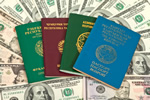Improved Vietnamese healthcare services attracting expat patients

Improved Vietnamese healthcare services attracting expat patients
Southeast Asia’s reputation for affordable healthcare has been diminished recently by reports of a Thai government study which revealed the country’s private hospitals are hiking their charges for foreigners by up to 300 per cent. Vietnam seems to be stepping into the gap by improving its healthcare services with an initial focus on emergency treatment. Resident expats as well as digital nomads and tourists are the focus of the improvements, and the fact that English is spoken more often than not is also helping expat patients to feel more confident of successful medical or surgical outcomes to treatment.
One recent case made the headlines when an Australian man collapsed at Ho Chi Minh City’s Tan Som Nhat International Airport, having suffered a heart attack. An ambulance took him straight to the City International Hospital where, after tests and a full examination, he was found to have a heart block, a block to his right bundle-branch block and several other health problems. His symptoms were varied and included fatigue, low blood pressure, dizziness and sweating. A coronary angiography revealed his dominant right coronary artery showing 80 per cent ostial stenosis, a condition resulting in narrowing of the blood vessel thus preventing the correct amount of blood flow to the organ.
Immediately, a stent was inserted, causing significant improvement to his condition, but all wasn’t over yet as he was also diagnosed with end-stage chronic kidney disease and was prescribed dialysis. After several days’ treatment, his heart and renal condition had improved enough to not need a permanent pacemaker implant. A week later, he was discharged from the hospital, and was more than pleased with the treatments and services he’d received whilst so seriously ill. His wife is also thrilled, as she’d feared his condition on admittance might lead to his death.
CEO of the hospital Dr John Lucas told local media the facility has seen many successful treatments of expat patients brought in as emergencies, stressing the majority of staff are English speakers, thus making vital communication far easier. Dr Lucas is keen to promote the hospital as a regional medical hub for both expatriates and tourists, adding the services provided are cheaper than those in surrounding Southeast Asian countries. Now that Vietnam is becoming a hub for expat talent, new arrivals are pleased to find they don’t have to fly elsewhere to get expert healthcare services. The country's private hospital network is expanding fast, with several new facilities now under construction to international standards.
Related Stories:
- Is Kuwaitization the unintended result of the oil price crash? - July 20, 2020
- Expats in Malaysia still banned from overseas travel - July 17, 2020
- HSBC Asia to cut back on internal expat relocations - July 16, 2020
- Tips on integrating for newly-arrived expats - July 15, 2020
Latest News:
- Tips on a trouble-free relocation as an expat overseas - July 20, 2020
- Expats find peace in the covid-19 refuge of Dahab town - July 20, 2020
- Is Kuwaitization the unintended result of the oil price crash? - July 20, 2020
- Expats unhappy abut changes to Korean points-based visa system - July 17, 2020
- Chiang Mai and Bangkok no longer bargain locations for expats - July 17, 2020
- Expats in Malaysia still banned from overseas travel - July 17, 2020
- Vietnam welcomes expats to its safe, affordable lifestyle - July 16, 2020
- Asian tiger economies reach out to expats in Hong Kong - July 16, 2020
- HSBC Asia to cut back on internal expat relocations - July 16, 2020
- Tips on integrating for newly-arrived expats - July 15, 2020


